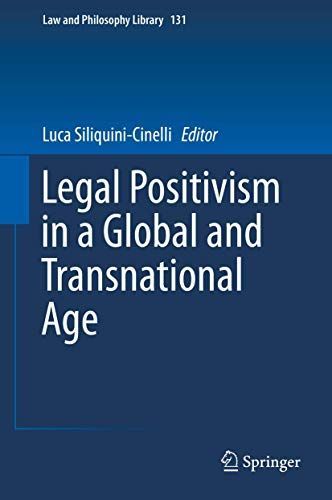
Legal Positivism in a Global and Transnational Age
A theme of growing importance in both the law and philosophy and socio-legal literature is how regulatory dynamics can be identified (that is, conceptualised and operationalised) and normative expectations met in an age when transnational actors operate on a global plane and in increasingly fragmented and transformative contexts. A reconsideration of established theories and axiomatic findings on regulatory phenomena is an essential part of this discourse. There is indeed an urgent need for discontinuity regarding what we (think we) know about, among other things, law, legality, sovereignty and political legitimacy, power relations, institutional design and development, and pluralist dynamics of ordering under processes of globalisation and transnationalism. Making an important contribution to the scholarly debate on the subject, this volume features original and much-needed essays of theoretical and applied legal philosophy as well as socio-legal accounts that reflect on whether legal positivism has anything to offer to this intellectual enterprise. This is done by discussing whether global and transnational cultural, socio-political, economic, and juridical challenges as well as processes of diversification, fragmentation, and transformation (significantly, de-formalisation) reinforce or weaken legal positivists’ assumptions, claims, and methods. The themes covered include, but are not limited to, absolute and limited state sovereignty; the ‘new international legal positivism’; Hartian legal positivism and the ‘normative positivist’ account; the relationship between modern secularisation, social conventionalism, and meta-ontological issues of temporality in postnational jurisprudence; the social positivisation of human rights; the formation and content of jus cogens norms; feminist critique; the global and transnational migration of principles of justice and morality; the Vienna Convention on the Law of Treaties rule of interpretation; and the responsibility of transnational corporations.